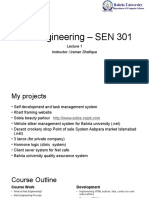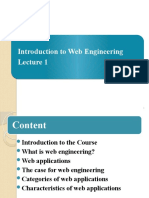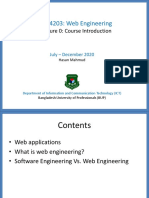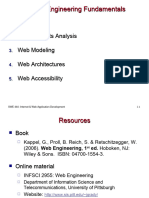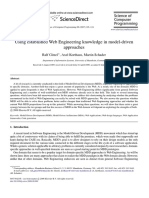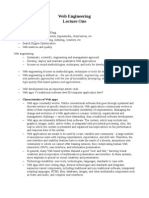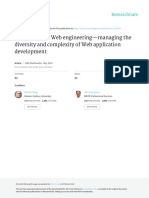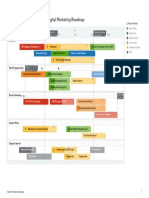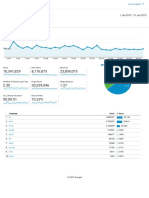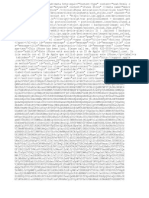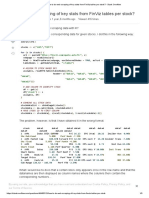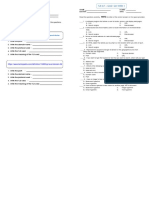0% found this document useful (0 votes)
215 views7 pagesWeb Engineering
The World Wide Web has become a major delivery platform for a variety of complex and sophisticated enterprise applications in several domains. In addition to their inherent multifaceted functionality, these Web applications exhibit complex behaviour and place some unique demands on their usability, performance, security, and ability to grow and evolve. However, a vast majority of these applications continue to be developed in an ad-hoc way, contributing to problems of usability, maintainability.
Uploaded by
Abigail LlanosCopyright
© © All Rights Reserved
We take content rights seriously. If you suspect this is your content, claim it here.
Available Formats
Download as DOCX, PDF, TXT or read online on Scribd
0% found this document useful (0 votes)
215 views7 pagesWeb Engineering
The World Wide Web has become a major delivery platform for a variety of complex and sophisticated enterprise applications in several domains. In addition to their inherent multifaceted functionality, these Web applications exhibit complex behaviour and place some unique demands on their usability, performance, security, and ability to grow and evolve. However, a vast majority of these applications continue to be developed in an ad-hoc way, contributing to problems of usability, maintainability.
Uploaded by
Abigail LlanosCopyright
© © All Rights Reserved
We take content rights seriously. If you suspect this is your content, claim it here.
Available Formats
Download as DOCX, PDF, TXT or read online on Scribd
/ 7




